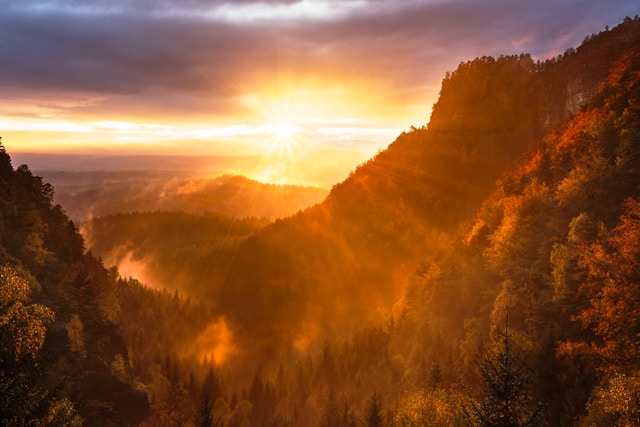Finding Our Voices Beyond the Boundaries
Reverend Janet Parsons
Gloucester UU Church
May 18, 2025
“The opposite of war isn’t peace, it’s creation.”
I was reminded recently of these lyrics from the song La Vie Boheme in the musical Rent, and they struck me as relevant for these times we’re experiencing today.
We long for peace in the world. We light our peace candle, we offer prayers, governments try to negotiate cease-fires. And yet, the end result, peace, is something of a passive state. What if the opposite of war is, in fact, creation? Creativity?
Our theme this month is Imagination, and I wanted an opportunity to explore what it means to be imaginative, and to create. So I invited all of you to share this, by bringing something of yourselves, something that once only existed in your imagination. And I invited Karl Frank and Peter Hornbeck to speak to you about what it’s like for them, to imagine something, and then to bring it to life. To create.
Growing up, I decided pretty early on that I was not creative or talented. Art class was something that happened once each week, something to be dreaded almost as much as gym. I was a voracious reader, mostly focused on the printed word, and it never occurred to me that there are many ways to be creative; that everyone is creative, and that we can learn to make space to allow our creativity to shine.
Creativity, and its partner imagination, might truly be the meaning of life. What is our purpose here, if not to create, in as many ways as we can?
As I’ve been exploring this topic, I came across a book called The Artist’s Way, by Julia Cameron. (See? I always look for a book.). It’s about discovering creativity and imagination as a spiritual practice. Julia Cameron offers great wisdom that she calls ‘spiritual principles’. These include: “Creativity is the natural order of life. Life is energy: pure creative energy. There is an underlying, in-dwelling creative force infusing all of life, including ourselves. When we open ourselves to our creativity, we open ourselves to the creator’s creativity within us and our lives. We are, ourselves, creations.” (The Artist’s Way, Julia Cameron, p. 19.)
Cameron urges people to create more space for themselves to enable their creative voices to emerge. But how? Well, as we might guess, meditation helps. But Julia offers two other practices that help us to open ourselves to those imaginative impulses that we might not know how to hear or feel. First, she advocates finding our creative selves by a practice she calls Morning Pages: every morning, first thing, sit and write mindlessly until you’ve written three pages. It might be that all you have on a given day is: “I don’t know what to write.” But over time, ideas begin to emerge. Thoughts long buried or unheard start to find their way onto the page. Interestingly, it’s not about writing, but rather, about unlocking ourselves, quieting the internal editor, the critic who is always telling us that what we’re doing isn’t good enough. Some days it can simply be venting, giving voice to all the negative thoughts and emotions that might be blocking our imaginations.
“There are so many boundaries in me,” we heard in our reading.
“so many limitations, prisons,
places where a line has been drawn—
perhaps by another, perhaps by me.” (A Prayer for Imagination, by Rosemerry Wahtola Trommer)
Morning Pages is a practice to help us erase the lines, to empty ourselves, to make room.
The second practice Julia Cameron recommends is called The Artist’s Date. This practice is intended to fill the wells of our souls, once we’ve made room. Once each week, she says, find an hour or two to do something that feeds your soul. It could be a visit to a museum. Or an afternoon in a bookstore. A concert! Picking up a musical instrument. Simply taking a walk and notice what’s blooming, or walk along the ocean or in the woods. Try a new recipe, or buy some flowers. Take your inner artist on a date; rediscover your artist and renew your relationship.
“My work is loving the world,” wrote poet Mary Oliver.
“Are my boots old? Is my coat torn?
Am I no longer young, and still half-perfect? Let me
keep my mind on what matters,
which is my work,
which is mostly standing still and learning to be
astonished.” (Mary Oliver, Messenger)
In these times, the work of loving the world is more important than ever. It might feel as though with all the urgent, terrible problems our country and other countries are facing, that learning to make room for our imaginative, creative selves is frivolous, is not important. But in fact, this is the work of resistance. “The opposite of war isn’t peace, it’s creation.”
Tyrants want people to be fearful, to be unhappy, to be depleted and passive, easily controlled. To counter tyranny, we must maintain our spiritual health, our very life force of creativity, so that we can continue to imagine justice, imagine a safe and healthy planet, imagine a better world. We can do this if we understand ourselves to be co-creators of the universe, that each of us offers our life force to sustain our collective existence and help the world to flourish.
Theologian Walter Brueggemann put it this way: “Our culture is competent to implement almost anything and to imagine almost nothing… because imagination is a danger. Thus every totalitarian regime is frightened of the artist.”
Be creative. Be dangerous. But mostly, find ways to make your souls feel alive and remind you that you have a purpose in the world.
Amen.

